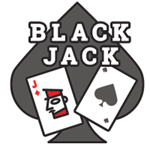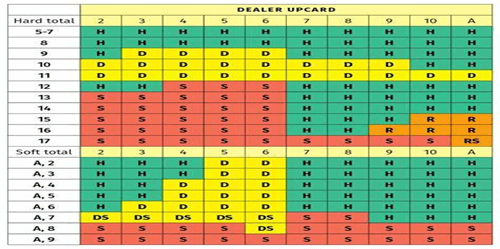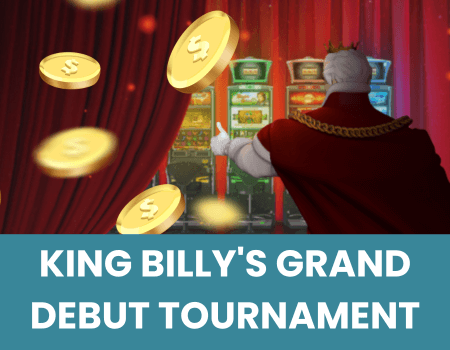Updated on: March 7th, 2024
Online Blackjack strategy is an exciting world. Whether you’re a seasoned player or new to the game, mastering the right strategies can greatly enhance your chances of winning big. In this guide, we’ll explore the key tips and techniques that will help you navigate the virtual tables with confidence.
winning big. In this guide, we’ll explore the key tips and techniques that will help you navigate the virtual tables with confidence.
Learn the difference between online and live Blackjack, memorize card rankings, and exercise caution when deciding to Hit or Stand. We’ll also share expert tips and charts that work, giving you the edge you need to dominate the online Blackjack scene. Let’s dive in and start winning!
Top Casinos with the best Blackjack strategy
1

$3000 Bonus + 300 Free Spins
Minimum Deposit: $20
2

$750 Bonus + 200 Free Spins
Minimum Deposit: $15
3
New Casino

$3000 Bonus + 100 Free Spins
Minimum Deposit: $20
4

$5,500 Bonus + 125 Free Spins
Minimum Deposit: $20
New Casino

5
18+. New players only. Welcome Offer – $6750 + 250 Free Spins. This bonus only applies for deposits of $20 or higher! 98% Payout.
New Casino 
6
$750 Bonus + 200 Free Spins
18+. New players only. Welcome Offer – $750 Bonus. This bonus only applies for deposits of $30 or higher! 98% Payout.

7
$6000 Bonus + 250 Free Spins
18+. New players only. Welcome Offer – $6000 Bonus + 250 Free Spins. This bonus only applies for deposits of $15or higher! 98% Payout.
New Casino

8
18+. New players only. Welcome Offer – $1850 + 500 Free spins. This bonus only applies for deposits of $20 or higher! 98% Payout.
Exclusive

9
$1200 Bonus + 300 Free Spins
18+. New players only. Welcome Offer – $1200 Bonus. This bonus only applies for deposits of $30 or higher! 98% Payout.

10
18+. New players only. Welcome Offer – $4,000 Bonus + 250 Free Spins. This bonus only applies for deposits of $10 or higher! 98% Payout.

11
$10,000 Bonus + 100 Free Spins
18+. New players only. Welcome Offer – $10,000 Bonus. This bonus only applies for deposits of $20 or higher! 99% Payout.
New Casino

12
18+. New players only. Welcome Offer – $7500 + 350 Free Spins. This bonus only applies for deposits of $20 or higher! 98% Payout.

13
$10.000 Bonus + 100 Free Spins
18+. New players only. Welcome Offer – $10,000 Bonus + 100 Free Spins. This bonus only applies for deposits of $30 or higher! 99% Payout.

14
$5,000 Bonus +75 Free Spins.
18+. New players only. Welcome Offer – $5000 Bonus. This bonus only applies for deposits of $10 or higher! 99% Payout.

15
$5000 Bonus + 300 Free Spins
18+. New players only. Welcome Offer – $5000 Bonus. This bonus only applies for deposits of $30 or higher! 98% Payout.

16
$4500 Bonus + 225 Free Spins
18+. New players only. Welcome Offer – $4500 Bonus. This bonus only applies for deposits of $20 or higher! 98% Payout.
New Casino 
17
18+. New players only. Welcome Offer – $5000 Bonus. This bonus only applies for deposits of $30 or higher! 98% Payout.

18
$750 Bonus + 200 Free Spins
18+. New players only. Welcome Offer – $750 Bonus. This bonus only applies for deposits of $30 or higher! 98% Payout.

19
18+. New players only. Welcome Offer – $2000 Bonus + 200 Free Spins. This bonus only applies for deposits of $20 or higher! 98% Payout.

20
$9000 Bonus + 200 Free Spins
18+. New players only. Welcome Offer – up to $9,000. This bonus only applies for deposits of $20 or higher! 97% Payout.

21
$750 Bonus + 200 Free Spins
18+. New players only. Welcome Offer – up to $750. This bonus only applies for deposits of $30 or higher! 98% Payout.

22
$6000 Bonus + 100 Free Spins
18+. New players only. Welcome Offer – up to $6000. This bonus only applies for deposits of $20 or higher! 99% Payout.

23
$2000 Bonus + 200 Free Spins
18+. New players only. Welcome Offer – $2000 Bonus + 200 Free Spins. This bonus only applies for deposits of $30 or higher! 99% Payout.
Exclusive 
24
$1670 Bonus + 600 Free Spins
18+. New players only. Welcome Offer – up to $1,670. This bonus only applies for deposits of $25 or higher! 98% Payout.

25
18+. New players only. Welcome Offer – $750 +110 Free Spins. This bonus only applies for deposits of $20 or higher! 98% Payout.

26
$1500 Bonus + 100 Free Spins
18+. New players only. Welcome Offer – $1500. This bonus only applies for deposits of $20 or higher! 98% Payout.
New Casino

27
18+. New players only. Welcome Offer – $3,000 Bonus. This bonus only applies for deposits of $20 or higher! 98% Payout.
Exclusive

28
$4000 Bonus + 400 Free Spins
18+. New players only. Welcome Offer – $4000 Bonus. This bonus only applies for deposits of $30 or higher! 99% Payout.

29
$10,000 Bonus + 100 Free Spins
18+. New players only. Welcome Offer – $10,000 Bonus. This bonus only applies for deposits of $30 or higher! 99% Payout.

30
$7000 Bonus + 300 Free Spins
18+. New players only. Welcome Offer – $7000 Bonus. This bonus only applies for deposits of $20 or higher! 98% payout.

31
$10.000 Bonus + 500 Free Spins
18+. New players only. Welcome Offer – $4000 Bonus. This bonus only applies for deposits of $30 or higher! 98% Payout.

32
$500 Bonus + 100 Free Spins
Min Deposit: $15
18+. New players only. Welcome Offer – $500 Bonus. This bonus only applies for deposits of $15 or higher! 98% Payout.

33
18+. New players only. Welcome Offer – $5000 Match. This bonus only applies for deposits of $20 or higher! 97% Payout.
New Offer 
34
$750 Bonus + 200 Free Spins
Min Deposit: $15
18+. New players only. Welcome Offer – $750 Bonus + 200 Free Spins. This bonus only applies for deposits of $15 or higher! 98% Payout.

35
$7500 Bonus + 550 Free Spins
18+. New players only. Welcome Offer – $7500 Bonus. This bonus only applies for deposits of $30 or higher! 97% Payout.

36
$5000 Bonus + 300 Free Spins
18+. New players only. Welcome Offer – $5000 Bonus. This bonus only applies for deposits of $20 or higher! 98% Payout.

37
$4000 Bonus + 150 Free Spins
18+. New players only. Welcome Offer – up to $4000. This bonus only applies for deposits of $30 or higher! 98% Payout.

38
$10,000 Bonus + 200 Free Spins
18+. New players only. Welcome Offer – $10,000 Bonus. This bonus only applies for deposits of $30 or higher! 99% Payout.
New Casino 
39
18+. New players only. Welcome Offer – $4,000 Bonus + 475 Free Spins. This bonus only applies for deposits of $30 or higher! 98% Payout.

40
$1200 Bonus + 75 Free Spins
18+. New players only. Welcome Offer – $1200 Bonus. This bonus only applies for deposits of $10 or higher! 98% Payout.

41
$7000 Bonus + 250 Free Spins
18+. New players only. Welcome Offer – Bonus up to $7,000. This bonus only applies for deposits of $20 or higher! 98% Payout.

42
$8000 Bonus + 700 Free Spins
18+. New players only. Welcome Offer – Bonus up to $8,000. This bonus only applies for deposits of $30 or higher! 98% Payout.

43
$5000 Bonus + 350 Free Spins
18+. New players only. Welcome Offer – $5000 Bonus. This bonus only applies for deposits of $15 or higher! 98% Payout.

44
$1500 Bonus + 50 Free Spins
18+. New players only. Welcome Offer – up to $1500 Bonus. This bonus only applies for deposits of $30 or higher! 98% Payout.

45
$1500 Bonus + 100 Free Spins
18+. New players only. Welcome Offer – $1500 Bonus + 100 Free Spins. This bonus only applies for deposits of $20 or higher! 98% Payout.

46
18+. New players only. Welcome Offer – $10,000 +150 Free Spins. This bonus only applies for deposits of $30 or higher! 98% Payout.

47
$6,000 Bonus + 200 Free Spins
18+. New players only. Welcome Offer – $6,000. This bonus only applies for deposits of $20 or higher! 97% Payout.

48
18+. New players only. Welcome Offer – $4000 +300 Free Spins. This bonus only applies for deposits of $15 or higher! 97% Payout.

49
18+. New players only. Welcome Offer – up to $14,000. This bonus only applies for deposits of $20 or higher! 98% Payout.

50
18+. New players only. Welcome Offer – $7500 Bonus. This bonus only applies for deposits of $20 or higher! 99% Payout.

51
$1500 Bonus + 200 Free Spins
Min Deposit: $15
18+. New players only. Welcome Offer – $1500 Bonus + 200 Free Spins. This bonus only applies for deposits of $15 or higher! 98% Payout.

52
$3000 Bonus + 100 Free Spins
18+. New players only. Welcome Offer – up to $3000. This bonus only applies for deposits of $20 or higher! 97% Payout.

53
$3000 Bonus + 200 Free Spins
18+. New players only. Welcome Offer – $3000 Bonus. This bonus only applies for deposits of $30 or higher! 98% Payout.

54
$3000 Bonus + 225 Free Spins
18+. New players only. Welcome Offer – $3000 Bonus. This bonus only applies for deposits of $30 or higher! 98% Payout.

55
$400 Bonus + 200 Free Spins
18+. New players only. Welcome Offer – $400 Bonus. This bonus only applies for deposits of $10 or higher! 98% Payout.

56
$1250 Bonus + 75 Free Spins
18+. New players only. Welcome Offer – $1250 Bonus. This bonus only applies for deposits of $20 or higher! 98% Payout.

57
$3500 Bonus + 100 Free Spins
18+. New players only. Welcome Offer – $3500 Bonus. This bonus only applies for deposits of $20 or higher! 98% Payout.

58
$30,450 Bonus + 100 Free Spins
18+. New players only. Welcome Offer – $30,450 Bonus. This bonus only applies for deposits of $20 or higher! 98% Payout.

59
$1500 Bonus + 100 Free Spins
3 Other Bonuses!
18+. New players only. Welcome Offer – $1500 Bonus. This bonus only applies for deposits of $10 or higher! 98% Payout.

60
$3500 Bonus + 350 Free Spins
18+. New players only. Welcome Offer – up to $3500. This bonus only applies for deposits of $10 or higher! 97% Payout.

61
$1500 Bonus + 500 Free Spins
18+. New players only. Welcome Offer – $1,500. This bonus only applies for deposits of $20 or higher! 98% Payout.

62
$1200 Bonus + 150 Free Spins
Min Deposit: $25
18+. New players only. Welcome Offer – up to $1,200. This bonus only applies for deposits of $25 or higher! 98% Payout.

63
18+. New players only. Welcome Offer – 160% Bonus. This bonus only applies for deposits of $20 or higher! 98% Payout.

64
18+. New players only. Welcome Offer – up to $2,500, for 2nd, for 3rd. This bonus only applies for deposits of $25 or higher! 98% Payout.

65
$1650 Bonus + 250 Free Spins
18+. New players only. Welcome Offer – Get up to $1650. This bonus only applies for deposits of $20 or higher! 99% Payout.

66
$8000 Bonus + 250 Free Spins
18+. New players only. Welcome Offer – up to $8000. This bonus only applies for deposits of $20 or higher! 98% Payout.

67
18+. New players only. Welcome Offer – 250%. This bonus only applies for deposits of $20 or higher! 98% Payout.

68
$10,000 Bonus + 100 Free Spins
18+. New players only. Welcome Offer – up to $10,000. This bonus only applies for deposits of $20 or higher! 98% Payout.

69
$3000 Bonus + 350 Free Spins
18+. New players only. Welcome Offer – up to $3000. This bonus only applies for deposits of $25 or higher! 98% Payout.

70
$5000 Bonus + 300 Free Spins
18+. New players only. Welcome Offer – $5000 Bonus. This bonus only applies for deposits of $10 or higher! 98% Payout.

71
$600 Bonus + 100 Free Spins
Min Deposit: $15
18+. New players only. Welcome Offer – up to $4,000 + 40 Free Spins. This bonus only applies for deposits of $20 or higher! 98% Payout.

72
$15,000 Bonus + 225 Free Spins
18+. New players only. Welcome Offer – up to $15,000. This bonus only applies for deposits of $20 or higher! 98% Payout.

73
$5000 Bonus + 100 Free Spins
18+. New players only. Welcome Offer – up to $5000. This bonus only applies for deposits of $10 or higher! 97% Payout.

74
$3000 Bonus + 100 Free Spins
18+. New players only. Welcome Offer – up to $3000. This bonus only applies for deposits of $15 or higher! 98% Payout.

75
$2500 Bonus + 200 Free Spins
Min Deposit: $15
18+. New players only. Welcome Offer – $2500, can be claimed 5x. This bonus only applies for deposits of $15 or higher! 98% Payout.

76
$4500 Bonus + 225 Free Spins
18+. New players only. Welcome Offer – $4500 Bonus + 225 Free Spins. This bonus only applies for deposits of $20 or higher! 98% Payout.

77
$400 Bonus + 100 Free Spins
18+. New players only. Welcome Offer – Bonus up to $400, can be claimed 5x. This bonus only applies for deposits of $20 or higher! 96% Payout.

78
$6000 Bonus + 100 Free Spins
Min Deposit: $25
18+. New players only. Welcome Offer – up to $6000. This bonus only applies for deposits of $25 or higher! 98% Payout.

79
$10,000 Bonus + 200 Free Spins
18+. New players only. Welcome Offer – up to $10,000. This bonus only applies for deposits of $20 or higher! 98% Payout.

80
$1000 Bonus + 50 Free Spins
18+. New players only. Welcome Offer – up to $1,000. This bonus only applies for deposits of $10 or higher! 98% Payout.
18+. New players only. Welcome Offer – Bonus up to $2000. This bonus only applies for deposits of $20 or higher! 98% Payout.

82
$2500 Bonus + 500 Free Spins
18+. New players only. Welcome Offer – up to $2500. This bonus only applies for deposits of $20 or higher! 98% Payout.

83
$4000 Bonus + 300 Free Spins
18+. New players only. Welcome Offer – up to $4,000. This bonus only applies for deposits of $20 or higher! 98% Payout.

84
$750 Bonus + 110 Free Spins
18+. New players only. Welcome Offer – $750 Bonus + 110 Free Spins This bonus only applies for deposits of $10 or higher! 98% Payout.

85
300% Bonus +250 Free Spins
18+. New players only. Welcome Offer – 300% Bonus +250 Free Spins. This bonus only applies for deposits of $25 or higher! 98% Payout.

86
$2500 Bonus + 120 Free Spins
18+. New players only. Welcome Offer – $2500 Bonus + 120 Free Spins. This bonus only applies for deposits of $10 or higher! 98% Payout.

87
$14,000 Bonus + 100 Free Spins
18+. New players only. Welcome Offer – $14,000 Bonus + 200 Free Spins. This bonus only applies for deposits of $10 or higher! 98% Payout. Bonus Code: 7DAYWELCOME200

88
$38,000 Bonus + 300 Free Spins
Deposit: 0.0001BTC
18+. New players only. Welcome Offer – Bonus up to $3,000. This bonus only applies for deposits of 0.0001BTC or higher! 98% Payout.

89
18+. New players only. Welcome Offer – $12,250 Match. This bonus only applies for deposits of $20 or higher! 98% Payout.

90
$450 Bonus + 250 Free Spins
Min Deposit: $25
18+. New players only. Welcome Offer – $450 Bonus + 250 Free Spins. This bonus only applies for deposits of $20 or higher! 97% Payout.

91
$5000 Bonus + 100 Free Spins
18+. New players only. Welcome Offer – $5000 Bonus + 100 Free Spins. This bonus only applies for deposits of $20 or higher! 98% Payout.

92
$7500 Bonus + 100 Free Spins
18+. New players only. Welcome Offer – Bonus up to $7500, can be claimed 9x. This bonus only applies for deposits of $20 or higher! 98% Payout.

93
18+. New players only. Welcome Offer – Bonus up to $7777. This bonus only applies for deposits of $20 or higher! 97% Payout.

94
18+. New players only. Welcome Offer – Bonus up to $2,000. This bonus only applies for deposits of $20 or higher! 97% Payout.

95
$2500 Match
Min Deposit: $25
18+. New players only. Welcome Offer – 235% Bonus up to $2,500. This bonus only applies for deposits of $20 or higher! 96% Payout.

96
18+. New players only. Welcome Offer – $5000 Match. This bonus only applies for deposits of $25 or higher! Use Bonus Code: SP200

97
18+. New players only. Welcome Offer – $8,000. This bonus only applies for deposits of $20 or higher! 96% Payout.

98
$800 Bonus + 120 Free Spins
18+. New players only. Welcome Offer – $800 Bonus + 120 Free Spins. This bonus only applies for deposits of $25 or higher! 98% Payout.

99
18+. New players only. Welcome Offer – Bonus up to $1,500. This bonus only applies for deposits of $20 or higher! 98% Payout.

100
18+. New players only. Welcome Offer – $1000 Match. This bonus only applies for deposits of $20 or higher! 97% Payout.

101
18+. New players only. Welcome Offer – up to $8888. This bonus only applies for deposits of $20 or higher! 97% Payout.

102
$2500 Bonus + 500 Free Spins
18+. New players only. Welcome Offer – Bonus up to $2500. This bonus only applies for deposits of $20 or higher! 97% Payout.

103
750% Bonus + 110 Free Spins
18+. New players only. Welcome Offer – 750% Bonus + 110 Free Spins. This bonus only applies for deposits of $20 or higher! 98% Payout.

104
18+. New players only. Welcome Offer – 750% Bonus. This bonus only applies for deposits of $20 or higher! 98% Payout.

105
18+. New players only. Welcome Offer – 750% + 110 Free Spins. This bonus only applies for deposits of $25 or higher! 98% Payout.

106
$12,500 Bonus + 55 Free Spins
18+. New players only. Welcome Offer – $12,500 Bonus + 55 Free Spins. This bonus only applies for deposits of $20 or higher! 97% Payout.

107
18+. New players only. Welcome Offer – $4500 Bonus. This bonus only applies for deposits of $20 or higher! 97% Payout.

108
18+. New players only. Welcome Offer – $4500 Match + 250 Free Spins. This bonus only applies for deposits of $20 or higher! 97% Payout.

109
18+. New players only. Welcome Offer – $1000 Match. This bonus only applies for deposits of $20 or higher! 97% Payout.

110
18+. New players only. Welcome Offer – $1000 Match. This bonus only applies for deposits of $20 or higher! 97% Payout.

111
18+. New players only. Welcome Offer – $1000 Match. This bonus only applies for deposits of $20 or higher! 97% Payout.

112
18+. New players only. Welcome Offer – $800 Match. This bonus only applies for deposits of $20 or higher! 97% Payout.

113
18+. New players only. Welcome Offer – $1500 Match. This bonus only applies for deposits of $20 or higher! 97% Payout.

114
18+. New players only. Welcome Offer – $1000 Bonus. This bonus only applies for deposits of $10 or higher! 97% Payout.
More Online Casinos
What is online blackjack strategy?
Online blackjack strategy is a set of tips and techniques to help players improve their chances of winning when playing blackjack on the internet. It involves making smart decisions about when to hit, stand, double down, or split based on the cards you have and the dealer’s card. It also includes managing your money wisely and choosing reputable online casinos. By using these strategies, players aim to increase their chances of winning and have a more enjoyable experience when playing online blackjack.
Importance of the strategy for blackjack gambling
The strategy for blackjack gambling holds significant importance for several reasons:
- Maximizing winning opportunities: Implementing a sound strategy increases the likelihood of making favourable decisions during gameplay, potentially leading to more wins.
- Minimizing losses: A well-defined strategy helps in making informed choices, reducing the risk of significant losses by avoiding impulsive or uninformed decisions.
- Enhancing the gaming experience: Following a blackjack strategy can add an extra layer of enjoyment to the game, as players feel more in control and engaged with the process.
- Promoting responsible gambling: A strategy encourages players to approach the game with a structured mindset, emphasizing the importance of responsible and calculated betting.
Knowing blackjack rule variants
Here are some easy-to-understand explanations of different blackjack rule variants:
Triple down on any two cards: In this variant, players can double down for a third time after already doubling down on their initial two cards, providing a potential advantage.
Five-card Charlie: If a player achieves a hand of five cards without going over 21, they automatically win in this variant, offering an advantage.
An optional half-win for 5-card Charlie: Some variants allow players to choose a half-win instead of a full win when they achieve a five-card Charlie, providing a slight advantage.
Suited blackjack bonus: players receive a bonus payout if they are dealt a blackjack with cards of the same suit.
Rule variations such as h27, das, and resplit: These are specific rules that can differ between casinos and can impact player strategy and the house edge.
Blackjack strategy order of operations
By looking at this sequence of steps, you can enhance your decision-making in a blackjack game and refine your overall strategy.
Evaluate your hand: Start by evaluating the total value of the cards in your hand.
Consider the dealer’s upcard: Take note of the dealer’s visible card, known as the upcard, as it will influence your strategy.
Refer to the basic strategy chart: Utilize a basic strategy chart that illustrates the suggested actions depending on your hand total and the dealer’s upcard.
Decide on your move: Based on the information from the basic strategy chart, decide whether to hit, stand, double down, split pairs, or surrender.
Execute your decision: Proceed to make your chosen move based on the optimal strategy.
Blackjack Strategy chart
By referring to the strategy chart, players can make informed decisions during a blackjack game, maximizing their chances of success based on the statistical odds of the game. The chart below displays the perfect basic strategy.

Odds and Payouts
The specific rules of the game and any offered side bets can cause the odds and payouts in blackjack to vary. Here are some general guidelines for the odds and payouts in traditional blackjack:
Odds:
- The likelihood of receiving a natural blackjack (an ace and a 10-value card) is approximately 4.8%.
- The odds of the dealer busting (going over 21) when their up card is a 4, 5, or 6 are relatively high.
Payouts:
- In blackjack, the dealer pays out even money (1:1) when the player’s hand beats the dealer’s hand without exceeding 21.
- Getting a natural blackjack usually results in a higher payout, often at a rate of 3:2, meaning the player receives 1.5 times their original bet.
- Some variations of blackjack offer additional payouts for specific hands, such as certain combinations of cards or achieving a certain total with multiple cards.
Blackjack House-edge
The house edge in blackjack refers to the statistical advantage that the casino has over the players in the long run. It is a measure of how much the casino can expect to win from each bet over time. The house edge in blackjack can vary depending on the specific rules and variations of the game. Here are some general points about the house edge in blackjack:
- When employing basic strategy in standard blackjack games where the dealer stands on soft 17 and blackjack pays 3:2, the house edge typically ranges around 0.5% to 1%.
- The number of decks used in the game can also affect the house edge. Generally, the fewer the decks, the lower the house edge. Single-deck blackjack games often have a lower house edge compared to those played with multiple decks.
- Variations in rules such as whether the dealer hits or stands on a soft 17, the ability to double after splitting, and surrender options can impact the house edge.
- Side bets and additional features in some blackjack variations can significantly increase the house edge. Players need to be aware of the impact of side bets on the overall house edge.
More Blackjack Online
Online Blackjack
Blackjack Strategy FAQs
Basic blackjack strategy is a set of rules and guidelines that players can follow to maximize their chances of winning. It involves making decisions based on the player’s hand and the dealer’s up card. Basic strategy charts are available for different rule variations, outlining the best actions to take in each situation.
Yes, following basic strategy is crucial for maximizing your odds of winning in the long run. Deviating from basic strategy can increase the house edge and reduce your chances of success.
Keeping track of the dealt cards to gain an edge over the casino is the strategy involved in card counting. While card counting can be effective, it requires a high level of skill and practice. Additionally, many casinos employ countermeasures to prevent card counting.
There are various ways to practice blackjack strategy, including using basic strategy charts, playing in online casinos with free play options, and utilizing mobile apps that simulate blackjack games.
Common mistakes include not hitting or standing when basic strategy recommends doing so, taking insurance bets, and not splitting or doubling down when it’s advantageous. It is important to familiarize yourself with basic strategy to avoid these errors.
While following basic strategy can significantly improve your odds, it does not guarantee winning in every session. Blackjack, like all casino games, involves an element of chance, and the house always maintains a slight edge.
 winning big. In this guide, we’ll explore the key tips and techniques that will help you navigate the virtual tables with confidence.
winning big. In this guide, we’ll explore the key tips and techniques that will help you navigate the virtual tables with confidence.


































































































































